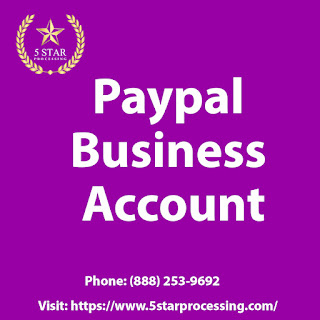The Pros and Cons of PayPal Business Account for Small Business
If you are a small business owner doing business online, you have probably looked into online methods for taking payment for your products and services. If you have, you undoubtedly found a PayPal Business Account during your search.
Notwithstanding its popularity, however, PayPal isn't the perfect solution for every small business. Here is a look at the pros and cons of using PayPal as your primary online payment processor for your small business.
Pros of Using PayPal Business Account
• It's easy to set up and use.
• Your clients/customers may already be familiar with PayPal.
• You don’t need a merchant account.
• Your clients/customers don’t need a PayPal account to pay you.
• You can create and send invoices directly through your account.
• PayPal's expenses are less than many merchant accounts (currently 2.9% + USD 0.30 for credit and debit card purchases).
• You can set up repeating payments.
• You can integrate PayPal with various shopping cart systems.
• It's protected.
Cons of Using PayPal Business Account
• There are hefty expenses for chargebacks.
• You are limited in terms of use and are likely to account for suspension at any time which can result in frozen funds for quite a long time.
• various individuals will not utilize PayPal Business Account, which might result in lost business.
• It tends to be difficult to contact PayPal's client service department.
Types of PayPal Business Account
A PayPal Business Account contains two overarching payments processing choices for entrepreneurs:
1. PayPal Payments Standard. All this essential PayPal Business Account doesn't charge a month-to-month maintenance expense and permits account holders to accept all of PayPal's payment methods (except payments made through telephone, fax, or virtual terminal). It additionally includes the standard PayPal Business Account benefits, similar to toll-free telephone support, and simplified PCI compliance functionality.
PayPal Payments Standard is great for entrepreneurs just getting started as well as those who are more than happy with a no-frills checkout choice on their site or via their e-commerce platform provider. Clients are taken to PayPal's site to finish payment and returned to the business' site afterward.
2. PayPal Payments Pro. A step up from its standard counterpart, PayPal Payments Pro includes all of the advantages that come with the basic account as well as the ability to accept payments via telephone, fax, or virtual terminal.
This account also gives business owners complete control over their checkout pages, which makes it ideal for individuals who truly need to take their e-commerce website to a higher level. Clients never leave the business' site while making a payment.
Not at all like PayPal Payments Standard, this option comes with a month-to-month maintenance fee of $30.
Conclusion
The choice to utilize or not use PayPal Business Account as your essential online payment processor is a major one and can certainly impact your business. It's always a good idea to explore your choices before making a choice.

Comments
Post a Comment